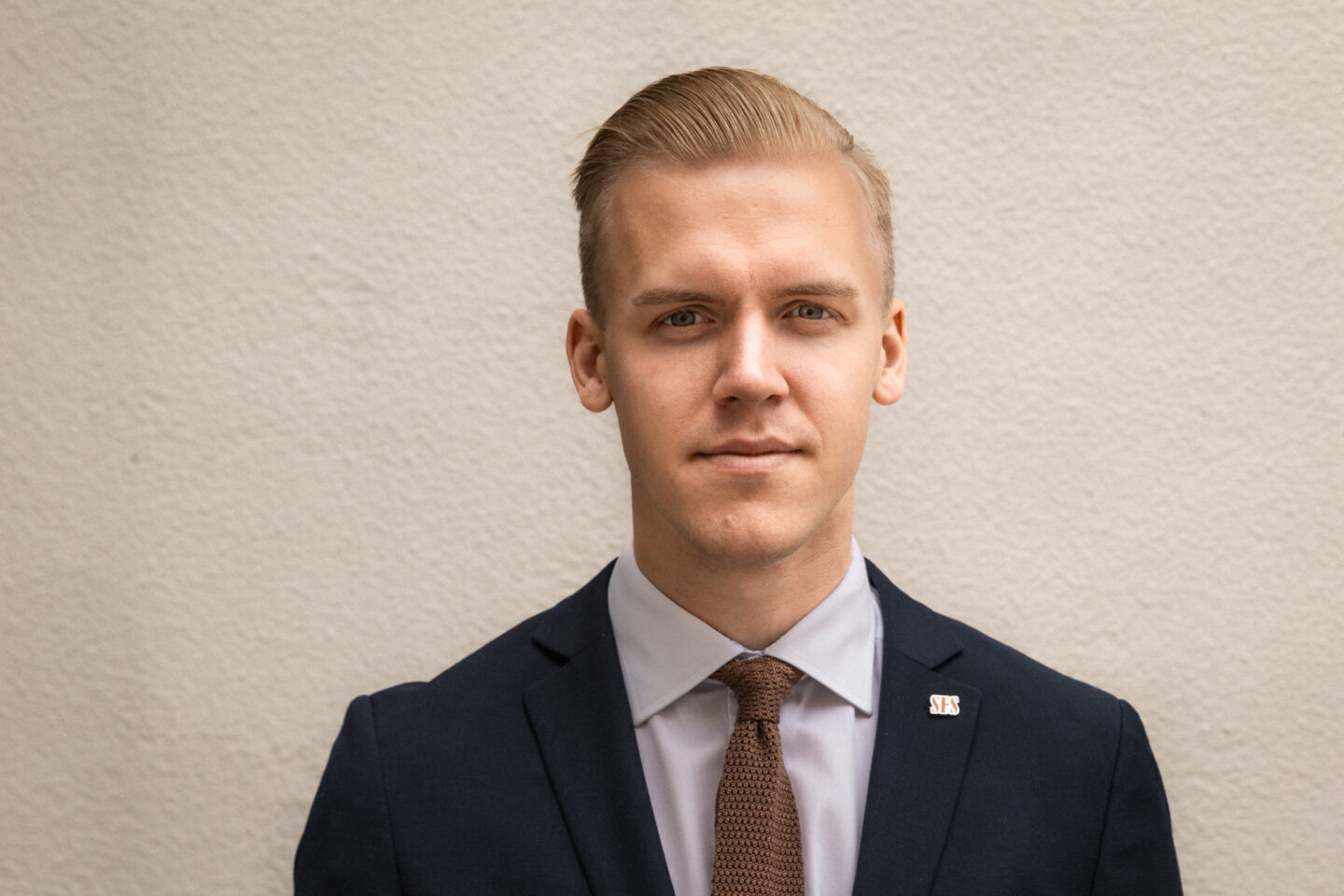Sociology training is now to be investigated in order to better prepare students for crime prevention work. SFS chairman Jacob Färnert reflects on the downsides of the policy governing higher education in detail and the risk of bypassing scientific practice.
On Thursday, the government announced at a press conference the appointment of a state public inquiry into the restructuring of sociology education. The investigation has already been announced in the Tidö Agreement and is motivated by equipping future social workers with tools to deal with juvenile delinquency. It is easy to sympathize with the ambition, but the inquiry nevertheless breathes new life into the question of the balance between the autonomy of education and interference from politics. At the Swedish National Union of Students, SFS, we raise a warning flag and believe that the investigation means a restriction on the freedom of higher education. We demand that the investigation includes a thorough investigation of the consequences of such detailed management.
Governments in Sweden of various colors have historically taken liberties to restrict academic freedom for higher education. Recently, it was the Social Democrat-led government that introduced new graduation goals in teacher training, an education that by far has the most graduation goals of all higher education programs. The current government's intervention is therefore not new. Nevertheless, it is equally important for Sweden's students to mark together with the rest of the sector. For a democracy like Sweden, a free academy, free courts, free art and free press should be a matter of course. Neither daily politics, interest groups nor troll factories should control what can be researched or taught at our universities. On the other hand, it has been shown in recent years that regardless of the political color of the government, it has not hesitated to restrict academic freedom and, above all, the autonomy of higher education institutions.
Controlling education in detail has drawn criticism from the government's own supervisory and analysis authority, the University Chancellor's Office, which in a survey has pointed out that "Introduction of new goals in the degree system must be restrictive and always preceded by thorough preparatory work, including in the form of anchoring in the current research area and with relevant education providers at Sweden's universities. This applies not least to the courses that already have many goals to take into account.
Higher education comes into its own in a context of diverse perspectives, open discussion and academic freedom. It presupposes a scientific environment with a high degree of autonomy. That environment consists of university and college teachers who do research and pass the science on to the students. What do the representatives of the academy and the students say about the government's proposal? Professors in social work from all institutions of higher education in Sweden that provide sociological education have in one debate article called the proposal a populist play where the parties behind the Tidö Agreement want to find a simple solution to complex problems. The prefect at the School of Social Sciences at Lund University has called the proposal very problematic and that the current training already includes crime prevention work which is a central and fundamental engine in all social work. It has also been raised criticism from doctoral students who claimed that the decision lacks factual basis and student unions who believe that the decision has the wrong focus.
An intervention of this kind risks stifling creativity, critical thinking and innovative solutions in education. The core of higher education lies in the hands of those who understand it best: university and college teachers, researchers and students. Social work is a complex field that requires adaptable and nuanced responses to the multifaceted challenges of youth crime. If teachers and researchers are not entrusted with the flexibility to address these challenges, solutions can become rigid.
While SFS agrees that the role of social services in preventing youth crime is important, we point out that the best approach is one that enhances education rather than dictating it. An education system should foster critical thinkers who can adapt to the ever-changing needs of society and can never be reduced to an activity that implements directives.
There are several alternative approaches. For example, the question of a strengthened freedom for higher education and research should be examined, rather than tightening the reins. We call on the government to improve the opportunities for university and college teachers to shape future sociologists – not as cogs in a law enforcement machine, but as educated, independent thinking and compassionate professionals.
If there is a need for increased knowledge within the relevant professional group, other approaches would be considered. For example, there may be better conditions for setting up courses at advanced level or supplementation in other forms of post-secondary education. Employers could also review their HR policy and create better incentives for further training for professionals through on-the-job training. The educational institutions could also investigate whether there is an opportunity to offer more elements of business-based education. We can state that the currently appointed investigation has the wrong focus and could aim at other issues that yield more profit. The principle of academic freedom is not only a question of principle, it is also a question of which measures bring the most dividends.
